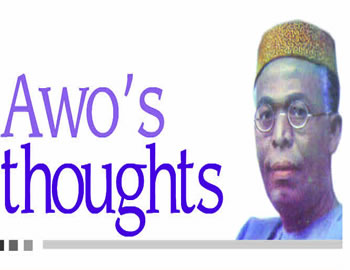IN speaking about 1976, I will start off by stating and explaining briefly two propositions of a universal character. They are deducible from a study of history and of human nature anywhere in the world.
The first proposition is that in the process of any great undertaking, two stages are crucial: the moment of decision and the moment of fulfilment.
ALSO READ: I wept at the sight of my bloodied colleague
Both of them call for courage, dedication and self-sacrifice; but the moment of fulfilment, being the more crucial, call for much higher order of these attributes.
The two moments can concur, but not always especially where some detailed work has to be done between decision and fulfilment.
Whenever there is a time-lag between decision and fulfilment arrives; and the longer the time interval, the greater the requisite sense of courage, dedication and self-sacrifice must be sustained through time, until the moment of fulfilment arrives; and the longer the time interval, the greater the strain, and the more difficult it is to sustain alive and on a higher scale, the attributes called forth at the stage of decision.
The reason for this is understandable; the affairs of man are always susceptible to internal and external frictions or influences. Consequently many otherwise great characters in history have failed at the moment of fulfilment or action.
Gethsemane may be likened to the moment offulfilment: But it took Jesus Christ alone to watch, pray, and triumph there; as for His Disciples, they became utterly dispirited at Gethsemane and later fled and deserted their Master until the Resurrection.
It should not surprise anyone, therefore, if ordinary mortals, before and after Christ” lost heart at the approaches to their lesser Gethsemanes.
The second proposition is this: power enslaves: absolute power enslaves absolutely
I have made a diligent search through history, and I have not come across a single instance where a regime, be it military or civilian, which has come to power AT ITS OWN WILL, and has wielded that power for many years, has found it easy to extricate itself from the sweet uses and shackles of power, and then hand it over to others outside its own hierarchy. It is possible, quite possible, that my search is not exhaustive and so, I stand to be corrected.
Anyway, history or no history, it is common knowledge that, in the context of contemporary Africa, TENACITY OF OFFICE is the order of the day amongst those in power and authority in ‘the Continent.
I define tenacity of office as a political monstrosity whose characteristics are an inordinate and shameless love of power for its own sake, and a morbid tenacity for public office even when all the legitimacy for continuing in such public office has completely disappeared
In the light of the foregoing, it is certainly not going to be an easy matter for the Supreme Military Council to hand over power to civilians in 1976.
But, if our Head of State, General Yakubu Gowon, is able to bring his characteristic courage, dedication and self-sacrifice to bear, and is also able to overcome the lower but powerful natural instincts and inclinations which must occasionally well up in him as a human being; ifhe is able to resist and neutralise all the external pressures and influences with which he must have been constantly assailed on all sides by heavily-disposed as well as well-meaning Nigerians and non-Nigerians alike; and if, above all, he is able to carry his military colleagues with him right up to the last moment of fulfilment in 1976, he will go down not only to Nigerian history but also to world history as, to borrow Hegel’s graphic expression, ‘A HERO’, ‘THE MAN OF ACTION’, and ‘THE WORLD-HISTORICAL INDIVIDUAL.
It is, I am sure, the sincere prayers of all of us that it may please Almighty God to uphold and strengthen General Gowon and the Supreme Military Council in the fulfilment of their voluntary and solemn promise to the good people of this great land to return power to civilians in 1976.






